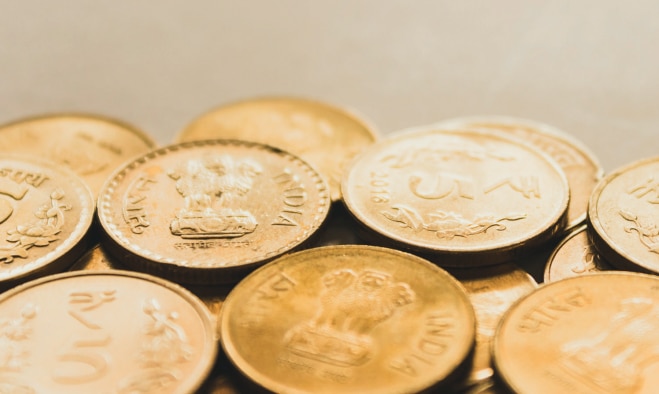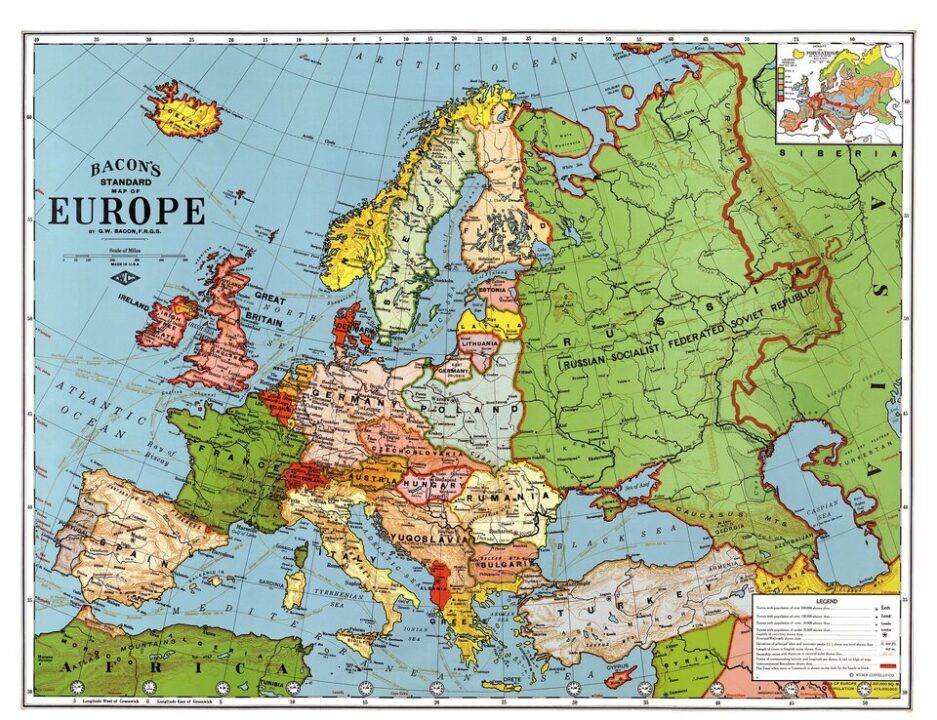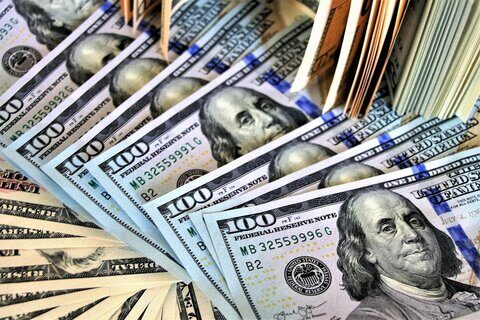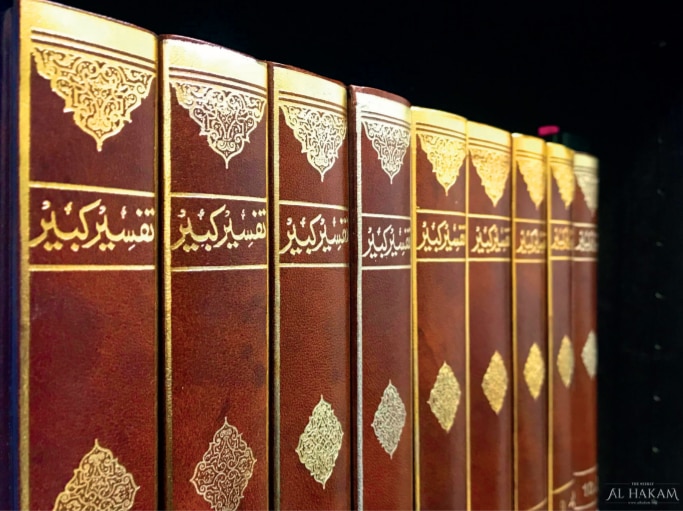Ata-ul-Haye Nasir, Al Hakam

There are many countries that have been blessed with immense amounts of natural resources, but still, they have a poor economy and thus, are bound to seek aid from other countries.
According to a report (2021) by UNCTAD, 490 million people in Africa were estimated to be living under the poverty line of $1.90 Purchasing Power Parity a day (PPP/day). (https://unctad.org/press-material/facts-and-figures-7)
In 2017, according to a report by UNESCWA, which covered 286 million people living in 10 Arab countries, there were 116.1 million (40.6%) people who belonged to poor households, of which 38.2 million (13.4%) lived in acute poverty.(https://ophi.org.uk/wp-content/uploads/multidimensional-arab-poverty-report-english.pdf)
India is advancing in many fields and even made an attempt to reach the moon, but according to the Asian Development Bank, the proportion of employed population below $1.90 PPP/day in 2019 was 7.7%, and the unemployment rate in 2020 was 7.1%. (https://www.adb.org/countries/india/poverty)
Pakistan, being an atomic power and having huge reservoirs of natural resources, is facing a severe energy crisis. Moreover, according to the Asian Development Bank, 24.3% of Pakistan’s population lived below the national poverty line in 2015, the proportion of employed population below $1.90 PPP/day in 2019 was 1.3%, and the unemployment rate in 2020 was 4.7%. (https://www.adb.org/countries/pakistan/poverty)
Even the developed countries are facing poverty.
According to a report by the United States Census Bureau, “In 2020, there were 37.2 million [11.4%] people in poverty.” (www.census.gov/library/publications/2021/demo/p60-273.html)
“In 2020, there were an estimated 96.5 million [21.9%] people in the EU at risk of poverty or social exclusion.” (https://ec.europa.eu/eurostat/statistics-explained/index.php?title=Living_conditions_in_Europe_-_poverty_and_social_exclusion)
The UN’s special envoy on human rights, Prof Olivier De Schutter said that the European Union is “not fit for purpose” in the task of reducing poverty in Europe and its “constitutional framework” was driving a race to the bottom in corporation and income tax and salary levels. (The Guardian, 29 January 2021, “EU ‘not fit for purpose’ to reduce poverty in Europe, says UN envoy”)

A reason behind these problems is the inability to protect and correctly use national wealth. Wealth and resources are depleted and stolen due to unfavourable policies and corruption, both at the individual and governmental levels.
“Corruption can affect income inequality and poverty through various channels, including overall growth, biased tax systems, and poor targeting of social programs as well as through its impact on asset ownership, human capital formation, education inequalities, and uncertainty in factor accumulation.” (www.imf.org/external/pubs/ft/wp/wp9876.pdf)
It is however necessary to define national wealth.
National wealth can be defined as the wealth owned by a nation at a point in time which is the nation’s total monetary value. It is made up of the nation’s capital, goods and services, including net foreign balance and tangible assets.
It is human nature to acquire and save wealth and profit from it. Allah the Almighty states in the Holy Quran:
وَّتُحِبُّوْنَ الْمَالَ حُبًّا جَمًّا
“And you love wealth with exceeding love”. (Surah al-Fajr, Ch.89: V.21)
Under the influence of this exceeding love, human beings damage national wealth while trying to hoard and save their own wealth through unlawful means.

Allah the Almighty states in the Holy Quran:
وَ لَا تَاۡكُلُوۡۤا اَمۡوَالَكُمۡ بَيۡنَكُمۡ بِالۡبَاطِلِ وَ تُدۡلُوۡا بِهَاۤ اِلَي الۡحُكَّامِ لِتَاۡكُلُوۡا فَرِيۡقًا مِّنۡ اَمۡوَالِ النَّاسِ بِالۡاِثۡمِ وَ اَنۡتُمۡ تَعۡلَمُوۡنَ
The Promised Messiahas has translated this verse (Surah al-Baqarah, Ch.2: V. 189) as:
“Do not devour each other’s substance through deceit and falsehood, nor offer your wealth as a bribe to the authorities, that you may deliberately acquire a part of other people’s wealth through injustice.” (The Philosophy of the Teachings of Islam, p. 54)
In the commentary of this verse, Hazrat Khalifatul Masih Ira states:
“Do not bribe and spend [money] unjustly in litigation. بَاطِلْ means something which is obtained against the Shariah.” (Haqaiq-ul-Furqan, Vol. 1, p. 311)
Hazrat Musleh-e-Maudra, in his commentary of this verse, states:
“On most occasions, to emphasise on national life, the Holy Quran calls the belongings of common men and people of the country or the nation as ‘your belongings’ so that it is understood that whichever person damages the people of the nation, damages himself. Here ‘your wealth’ also means the wealth of other people. But to bring attention towards the above-mentioned rule, it has been called ‘your wealth.’” (Tafsir-e-Saghir, p. 52)
He stated on another occasion:
“The word تُدْلُوْا بِهَا is in the sense of لَا تُدْلُوْا بِهَا and it means that 1.) do not take each other’s wealth to the authorities. Meaning, do not take their wealth by making false cases 2.) do not give wealth to the rulers as a bribe.
“Human beings obviously consume their own wealth, thus, لَا تَاْكُلُوْا اَمْوَالَكُمْ means, do not consume each other’s wealth with falsehood. Human beings consume the wealth of others in many ways. Firstly, by lying, secondly by snatching through illegal ways, thirdly through interest, fourthly by taking bribes. All these things are included in dishonesty.
“In the words وَ تُدْلُوْا بِهَا اِلَی الْحُكَّامِ, it has been taught that as it is invalid to consume each other’s wealth, in the same way, you should not lure the authorities with money so that you can consume the wealth of others through this. In this verse, it has been forbidden and declared illegal to bribe the authorities.
“The second meaning of this verse is that you should not take your wealth to the authorities so that you can consume a portion of the people’s wealth through sin. Meaning, do not file false cases against them and do not think that it will be valid for you if the ruler would give you someone else’s right without doing true justice. Because there is a heavenly court too which is much higher than these worldly courts and when He [God] has declared something unlawful in His law, then it will remain invalid and unlawful even if any worldly court declares it lawful.” (Tafsir-e-Kabir, Vol. 2, p. 415)

Allah the Almighty states in the Holy Quran:
هُوَالَّذِيْ خَلَقَ لَكُمْ مَّا فِی الْاَرْضِ جَمِيْعًا
“He it is Who created for you all that is in the earth.” (Surah al-Baqarah, Ch.2: V.30)
Meaning, everything which is present in this world has been created by Allah the Almighty for the benefit of the whole of mankind. As human beings, they might be the owners of certain things, but eventually, they are responsible and answerable to Allah for their protection.
Thus, the Holy Prophetsa said:
أَلَا كُلُّكُمْ رَاعٍ، وَكُلُّكُمْ مَسْئُولٌ عَنْ رَعِيَّتِهِ
“Surely! Everyone of you is a guardian and is responsible for his charges.” (Sahih al-Bukhari, Kitab al-Ahkam, Hadith 7138)
In the commentary of the above-mentioned verse (Surah al-Baqarah, Ch.2: V.30), Hazrat Musleh-e-Maudra states:
“That is, everything that is found in the world has been created by Allah for the benefit of mankind.
“Mountains, rivers, mineral wealth and other means of human progress are mankind’s collective property, and we all have a share in this collective wealth. All these natural resources provide electricity, gold, silver, and other precious metals as well as drugs and chemicals that are used to treat illnesses. There is a limitless variety of produced goods, some for personal consumption, some for industry as raw materials, and some are traded internationally.
“God reminds us that everything has been created for the benefit of mankind. No individual can lay exclusive claim upon these resources, whether it is a Pharaoh, a Hitler, a Churchill or a Roosevelt. Everything that has been created is for the benefit of the entire human race, including the rulers and the ruled, the high and the low, the superior and the subservient. No one may claim that God has created these things only for his own personal use. The Quran tells us that ‘I have created this for you’ and that we are all collective claimants of His creation.” (The Economic System of Islam, pp. 17-18)
At another place, Hazrat Musleh-e-Maudra states:
“This verse also implies that all that is in the world is a common inheritance of mankind, so it should not be used in the way of being the exclusive property of an individual or a nation. Europe is moving towards destruction by ignoring this point. If Europe were to follow the teachings of the Holy Quran, then there would never have been the jealousy and malice that is brewing between different countries, nations, groups and individuals. Islamic teaching on sadaqat [alms] and zakat is also based on the same principle that in fact all the objects of the earth are created for all human beings and that humankind, as a whole, is their owner.
“Thus, even though individual possession should be recognised, it should not be in such a way that others who are also equally eligible for these rights, would be completely deprived of it.” (Tafsir-e-Kabir, Vol. 1, p. 268)
Hazrat Mirza Tahir Ahmad, Khalifatul Masih IVrh stated:
“As with the social system advocated by Islam, the Islamic economic system commences with the premise that all that is in the heavens and the earth has been created by God, Who has bestowed man various provisions on trust. As a trustee, man will be held accountable for the discharge of this trust. The possession or absence of wealth is a means of trial so that in both abundance and adversity, those who are mindful of their accountability may be distinguished from those who resort to callousness and scant attention to the sufferings of the rest of mankind. […]
“An important concept of possession under Islam is that certain resources are taken out of individual ownership and placed in the hands of mankind as a whole. Thus, mineral resources and the produce of seas and oceans is not the exclusive property of any individual or group of people.” (Islam’s Response To Contemporary Issues, pp. 173-174)

The history of mankind shows that those nations which understood and acted on the principle that all wealth belongs to Allah and He is the real Owner and it cannot be consumed against His Will, eventually succeeded. But those who did not give any importance to this were destroyed and their economies met destruction.
For instance, Hazrat Shoaibas taught his people not to use those ways of earning and consuming their wealth which resulted in disorder. But his people mocked him and questioned his authority on guiding them – it was their money, their wealth, their properties, thus, it was their right to decide whichever way it should be used. So, his people rejected Allah’s commandment and eventually had to face His torment.
It is impossible to witness protection of wealth at the national level without protection at an individual level.
At the individual level, one of the basic duties of protecting national wealth is that every citizen should pay the due taxes in all honesty because a portion of that tax is spent on the national assets and for the production, repair and protection of those assets. Roads, sanitation systems, health, education and other arrangements that are made for the welfare of the public are all counted as national wealth or assets.
One aspect of the protection of national wealth is to avoid anything that involves extravagance and waste of individual goods. Because individual wealth collectively makes the national wealth. That is, if the citizens of a country waste their own personal wealth, it will be a waste of national wealth.
Hazrat Musleh-e-Maudra has explained this phenomenon in detail:
“[…] There are many other examples of wasteful spending. For example, some pleasure-seekers spend a fortune on dancing women, others, for lack of alternatives, spend it on gatherings of poetry recitals. There may be a poor widow in their backyard holding in her lap her hungry and crying children all night, but the rich give little thought to feeding the orphans, as they care more for their fame. However, God declares that they are not spending their money but rather wasting it. […]
“Islam expects the rich to reach out to such hopeless poor and strive to heal their bruised hearts. Islam expects the rich to achieve such heights of moral advancement that, after doing everything in their power in the service of the poor, they do not regard themselves as superior for being charitable. Instead, Islam expects the rich to remain humble before God and constantly prod their hearts to ascertain if they have truly fulfilled their duty towards the poor.” (The Economic System of Islam, pp. 24-26)
Huzoorra further said:
“Cinema and theatre are another area of waste in this day and age. I once made a rough calculation and was astonished to discover the enormous amount the public spends on this pastime. […] The Holy Quran shuts the doors of all such avenues of wastage, and holds true believers to be those who stay away from such frivolous activities and do not spend a penny of their income on them.
“The European countries with democratic governments are eager to promote their economic progress but spend a fortune building cinema houses and theatres. […] However, Islam categorically rejects all such activities that are not in the interest of mankind at large. If these teachings of Islam were adopted, the society would become largely egalitarian, as a big incentive to earn illicit wealth is the urge to satisfy vain desires.” (The Economic System of Islam, pp. 46-47)
Alcohol consumption, smoking and gambling are the prominent evils of this era and they are causing unforgettable loss to national wealth.
In this regard, Hazrat Khalifatul Masih IVrh stated:
“The amount spent on drinking in one day in Great Britain is enough to feed the famine-stricken multitudes of Africa for many weeks. Yet, in the most poverty-stricken countries of Africa and other continents, drinking is not considered a luxury that people cannot afford. Having failed to provide for the basic necessities of life and their children’s education, there are millions of Africans who would still have access to the consumption of alcohol. In the poor south of India where factory-made wine is not available to all, homemade toddy serves as a substitute. However, poverty does deter the spread of the ‘mother of all evils’ to a degree. If the per capita income rises, so does the expenditure on drink. Until someone becomes an alcoholic, nobody seems to care much about it.” (Islam’s Response to Contemporary Issues, p. 156)
Alcohol consumption has extremely bad effects on human health, so eventually, there are a lot of expenses incurred on health care, and the crime rate in society also increases.

A report published on 2 March 2017 by the Institute of Alcohol Studies presented the economic losses to the UK economy as a result of alcohol consumption. According to the report, direct costs are likely in the range of £8-11 billion whereas total societal costs, for example, the impacts of alcohol-related violence and distress, have been estimated between £21-52 billion.
The report stated:
“The World Health Organization has recommended per capita consumption as one of the key indicators of its target of a 10% reduction in the harmful use of alcohol. Such a prospect might cause alarm on economic grounds. However, there is little reason to believe lower alcohol consumption would have a negative effect on the economy – indeed, it may boost national income. […] In the ‘long run’ (when productive capacity is the main constraint on the economy) lower alcohol consumption is likely to have a positive effect by boosting productivity and labour supply, by reducing absenteeism, presenteeism, unemployment and premature mortality.” (www.ias.org.uk/wp-content/uploads/2020/06/rp23022017.pdf)
According to a report published in 2017 by the Government’s Tobacco Control Plan for England, smoking costs England’s economy in excess of £11 billion per year. Of this, £2.5 billion falls to the NHS, £5.3 billion to employers and £4.1 billion falls to wider society.
The report further states:
“Smoking-related ill health also leads to increased costs for the adult social care system. One study estimates that local councils face a demand pressure of £760 million a year on domiciliary (home) care services, as a result of smoking-related health conditions.” (www.gov.uk/government/publications/towards-a-smoke-free-generation-tobacco-control-plan-for-england)
This data proves that smoking and alcohol consumption and the resulting costs severely harm national wealth. If efforts are made individually, these costs can be reduced, or even eliminated altogether.
Regarding gambling, Hazrat Khalifatul Masih IVrh stated:
“In economics, gambling is more objectionable than drinking. In gambling, money changes hands without pushing the wheel of economy just as money is exchanged for money without an underlying exchange of commodity in the money markets. In gambling, money changes hands without participating in the process of economic development and production of wealth. Though some economic purpose is served in the money markets, almost none is served in gambling. Under a free trade and industry environment, money does not change hands without serving the economy in material form.
“In trade and commerce, the exchange of value, more often than not, is beneficial for all concerned. It is inconceivable that the majority of traders should most often suffer losses. While in gambling, as a rule, a large majority of participants suffer losses most of the time. For instance, few casinos go bust. For the gain of a few, hundreds of thousands of people must suffer. The only value they get in exchange for the money they lose is the excitement and thrill of suspense until the realisation that they have lost their stake at last dawns upon them.
“After that, they begin to wager again with a slim chance of recouping their losses until the tension and stresses grow far beyond the pleasure of excitement they receive in the bargain; the anguish and the heartache no longer remain a private matter for an individual but begin to tell on family relationships. In the poorer sections of society, the daily needs of family members have to be sacrificed at the altar of gambling.” (Islam’s Response to Contemporary Issues, pp. 156-157)

While addressing the 2016 National Ijtema of MKA UK, Hazrat Khalifatul Masih Vaa advised the youth of the Jamaat to avoid all the evils of this era. While mentioning alcohol and gambling, Huzooraa said:
“[…] Two other major vices that are prevalent today, are alcohol and gambling. Here in the west, they are both considered as normal. Yet, the Quran has very clearly forbidden them because both these vices have extremely far-reaching and negative consequences. […]
“In terms of gambling, it is prohibited because it is a means of recklessly wasting a person’s fairly earned and honest income or wealth. To gamble one’s wealth – whether in casinos, or in any other way, like in play machines at service stations or shops or playing cards with betting – is to turn lawful and legitimate wealth into a means of immorality and wrong doing. […]
“Rather than seeking dishonest ‘easy-money’ through gambling, you should seek to earn a living in a fair and honest fashion. Remember, that a true khadim is he who works hard, with honesty and integrity at all times.”

The greatest responsibility for the protection of national wealth lies with its rulers. They must strive for the betterment of the nation’s economic condition, and to ensure that the national wealth is safe and whatever means are necessary to improve the financial condition of the nation, should be used.
Allah the Almighty states in the Holy Quran:
وَلِلّٰهِ مُلۡكُ السَّمٰوٰتِ وَالۡاَرۡضِ ؕ وَاللّٰهُ عَلیٰ كُلِّ شَيۡءٍ قَدِيۡرٌ
“And to Allah belongs the kingdom of the heavens and the earth; and Allah has power over all things.” (Surah Aal-e-Imran, Ch.3: V. 190)
At another place, Allah says:
وَ تَبٰرَكَ الَّذِيۡ لَهٗ مُلۡكُ السَّمٰوٰتِ وَ الۡاَرۡضِ وَ مَا بَيۡنَهُمَا
“And blessed is He to Whom belongs the kingdom of the heavens and the earth and all that is between them” (Surah al-Zukhruf, Ch.43: V.86)
Since all the kingdoms belong to Allah, all humans are answerable to Him regarding their kingdoms and possessions. They are apparently kings, but the real King is God.
A common person is answerable for the valid consumption of their personal wealth, whereas, a king, president or prime minister has to answer for the safety and valid consumption of national wealth.
Islam has declared the government as a trust, not property and protection of people’s dignity, life and wealth (national wealth) is the basic purpose of a government.

About those who assume power, Allah says:
وَاِذَا تَوَلّٰی سَعٰی فِی الۡاَرۡضِ لِيُفۡسِدَ فِيۡهَا وَيُهۡلِكَ الۡحَرۡثَ وَالنَّسۡلَ ؕ وَاللّٰهُ لَا يُحِبُّ الۡفَسَادَ
“And when he is in authority, he runs about in the land to create disorder in it and destroy the crops and the progeny [of man]; and Allah loves not disorder.” (Surah al-Baqarah, Ch.2: V. 206)
In commentary of this verse, Hazrat Musleh-e-Maudra states:
“There are many rulers and kings in the world, who when they assume power — that is, when they acquire authority by employing God-given capacities — they run about in the land to create disorder in it instead of serving the country and its inhabitants. Their activities create disturbances and disorder between different tribes, nations and religious groups, and result in economic disruption, cultural degradation, and the ruin of future generations.
“This verse points out that there are rulers and kings who gain authority because of God-given faculties. However, once in power, instead of serving their country or its people, and establishing peace and security, they introduce measures that lead to conflict between people of different countries, tribes and religions, and create chaos in the land. They also adopt ways that destroy the country’s social and economic fabric and bring ruin to future generations.
“The word harth in the Quranic verse literally means an ‘agricultural crop’, but here it is used figuratively with a wider connotation to all resources of economic development and financial well-being. The reference is to the rulers who do not adopt measures appropriate for economic growth and financial improvements of their people, but, instead, make laws that destroy the country’s society, its economy and its financial situation. In this way, they create obstacles for the progress of future generations and make laws that deprive them of the capacity and knowledge needed for growth and development. God reminds us: ‘Allah loves not disorder’. Thus, He regards such sovereigns and rulers with displeasure, and worthy of divine chastisement.
“The conclusion from the above verse is that, according to Islam, the rulers, in the true sense of the word, are those that provide peace, improve economic well-being of their subjects, make their lives secure, and do not squander the country’s resources in unnecessary wars resulting in wanton loss of life. In other words, the State is obligated to ensure peace, security and well-being of its citizens.” (The Economic System of Islam, pp. 6-7)
In light of this excerpt, another aspect of the protection of national wealth comes from the fact that the government should not use its national wealth in unnecessary wars, but use them for the development of the nation.

We see that the countries that call themselves the ‘developed’ countries, are wasting national wealth on unnecessary wars.
In this era, we see that strong nations exploit the weaker nations often through the excuse of war and helping that weaker country. They claim to be their helpers, but actually, they are not.
Hazrat Mirza Masroor Ahmad, Khalifatul Masih Vaa states:
“The powerful nations take advantage of the weaker nations and dictate their own preferred policies and so in this way they have practically enslaved the developing countries. Sadly, the major powers take benefit and advantage of the natural resources of the poorer nations and do not give what is the due right of the weaker nations in return.” (‘Africa at 50’ event, PAAMA, 23 November 2013)
While mentioning the duties of the rulers, Hazrat Musleh-e-Maudra states:
“If rulers protect people’s lives and wealth, make decisions based on justice and fairness, do not discriminate against individuals or communities, treat the weak and the strong equally, maintain order within the State, and do not tread the path of rulers who show favouritism and bias, then they would not only be carrying out God’s commandment, but would themselves benefit from this conduct. […]
“God instructed the rulers in His shariah that they must always act with equity and justice, strive constantly to uplift the nation’s economic condition, protect the life and property of its citizens, and not discriminate between individuals and nations and not adopt ways that would be detrimental to the development of the country and future generations. Instead, the rulers should always adopt such means and laws that are essential for the country’s progress.” (The Economic System of Islam, pp. 8-9)
May Allah the Almighty enable us to protect our national wealth at the individual level and may Allah guide all world leaders as well, so that they spend their national wealth in the right way.

